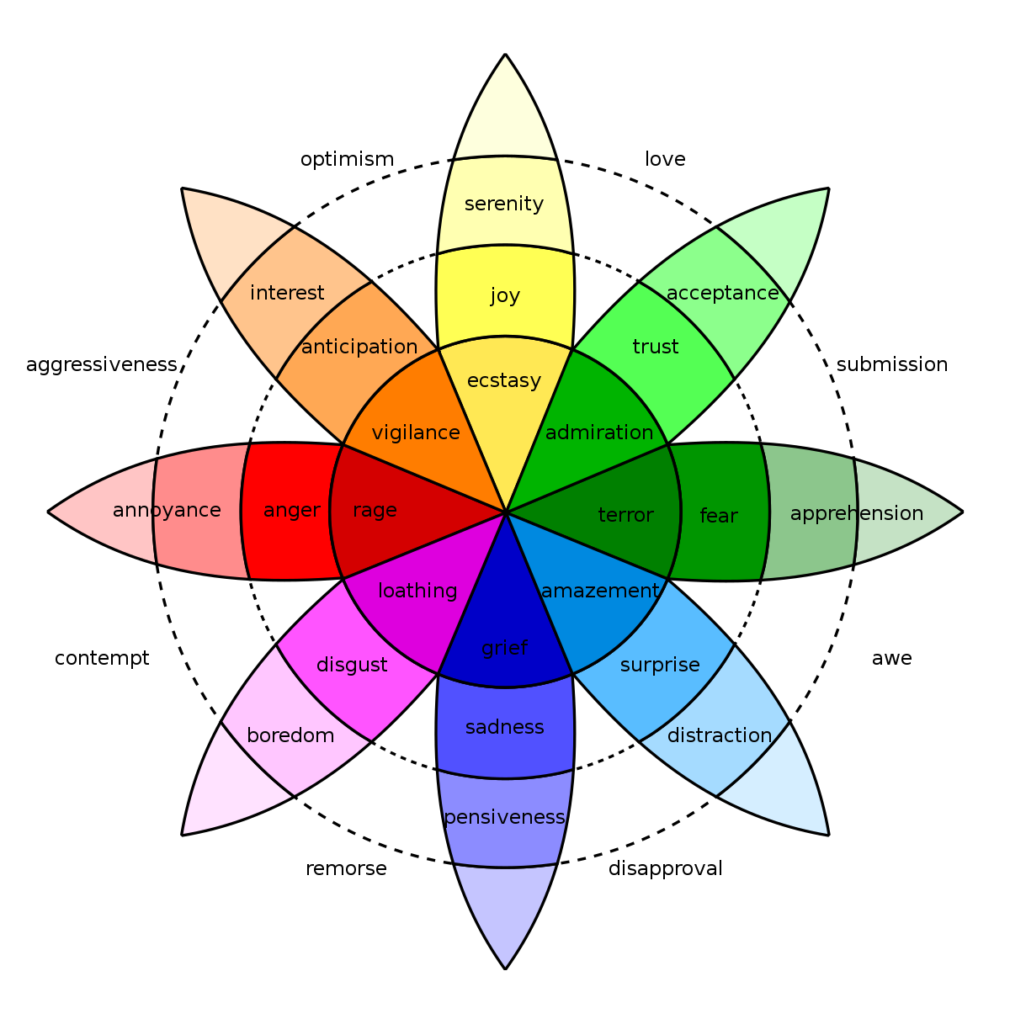Silvia and I are this week’s motivators. My provocation departs from Silvia’s amazing engagement with Latin American authors (Paulo Freire, Orlando Fals Borda, Eduardo Galeano) who called for politically embodied processes of knowledge production. The digital humanities are a deeply embodied experience. Embodiment may not come easily for digital humanists so it is important that we make embodiment an intentional practice.
In the spirit of decolonial feminism and in conversation with Silvia’s post, I would like for us to get in touch, (re)connect, and (re)ground with our emotions, feelings, and sensations (see emotions wheel to access emotional language).
- When you think of your project, what emotions and sensations show up in your body?
- Think of why you want to do your project (Chris Stein), who will it be for? Scan your body head to toe and name your feelings
- What social justice struggle(s) or movement(s) is your project inspired on or is for? Where do emotions and sensations sit in your body when you think of this question?



